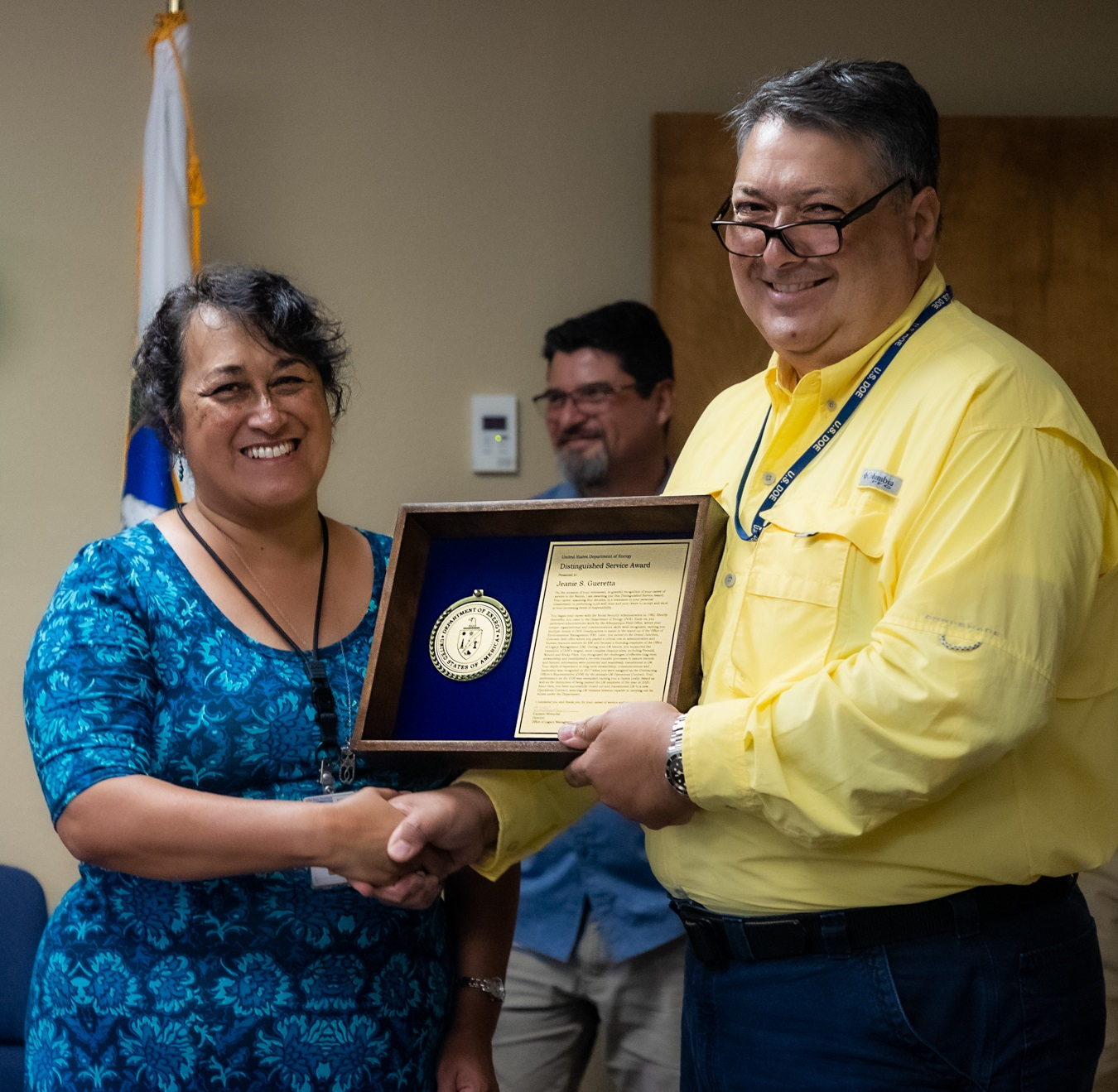Former contracting officer representative was part of original staff when office was created
November 21, 2023
As part of LM’s 20-year anniversary celebration, this is one in a series of profiles of current and former LM employees who address various aspects of the LM mission.
The Department of Energy established the Office of Legacy Management two decades ago to ensure the continuing protection of human health and the environment at cleaned up sites that had supported the Manhattan Project and Cold War-era nuclear weapons complex. On Dec. 15, 2003, LM began providing long-term stewardship of sites that had played a critical role in America’s nuclear history.
Jeanie Gueretta was there on day one.
“When the office came together, I was part of the original staff that helped form the new organization,” said Gueretta, a contracting officer representative who retired last year.
Like many who were part of LM’s initial team, Gueretta helped operationalize the office’s mission to protect human health and the environment. A lesser known, but also important, function of the office is to preserve legacy records and ensure they are accessible.
“A lot of organizations look at records and information management as somebody in a basement managing records on a shelf or a file cabinet,” said Gueretta.
The task was daunting. At the time, Gueretta said she understood in theory what corralling and organizing troves of information would look like, but once the breadth of the data became clear she realized these were uncharted waters.
“It was overwhelming,” she said. “We transitioned more than 40,000 cubic feet of hard copy records and I don't know how many bytes, but lots of bytes of data.”
The deluge of documents involved not just sorting but developing a modern system of cataloging files for future learnings, litigation and legacy management.
“It was unprecedented,” she said. “We really didn't have a model. … Fortunately, DOE came together as a whole, and we had really good people from other DOE offices helping us to figure it out.”
Edwin “Doc” Parks, LM deputy director for Business Operations, worked with Gueretta and described her as an ideal teammate.
“Her organizational skills, attention to detail, and patience with everyone involved in this activity made a difficult task as enjoyable and doable as possible,” Parks said.
Gueretta and her colleagues knew the importance of information management from the outset because it came after Congress passed the Energy Employees Occupational Illness Compensation Program Act in 2000.
The legislation compensates current and former employees, contractors and subcontractors (or their survivors) of the DOE and its predecessor agencies who were diagnosed with radiogenic cancer and other diseases as a result of workplace exposure to radiation, beryllium, or silica.
“The Department of Labor actually administers the program, but they depend on DOE for records to show that this person worked at a site during this time frame and possibly what they were exposed to,” Gueretta said.
This fact was never lost on Gueretta, who says she always felt the weight of history and why the stakes were high.
As she reflects on her time at LM, she sees it as a source of pride by performing critical work in the formative years that helped LM become what it is today.

